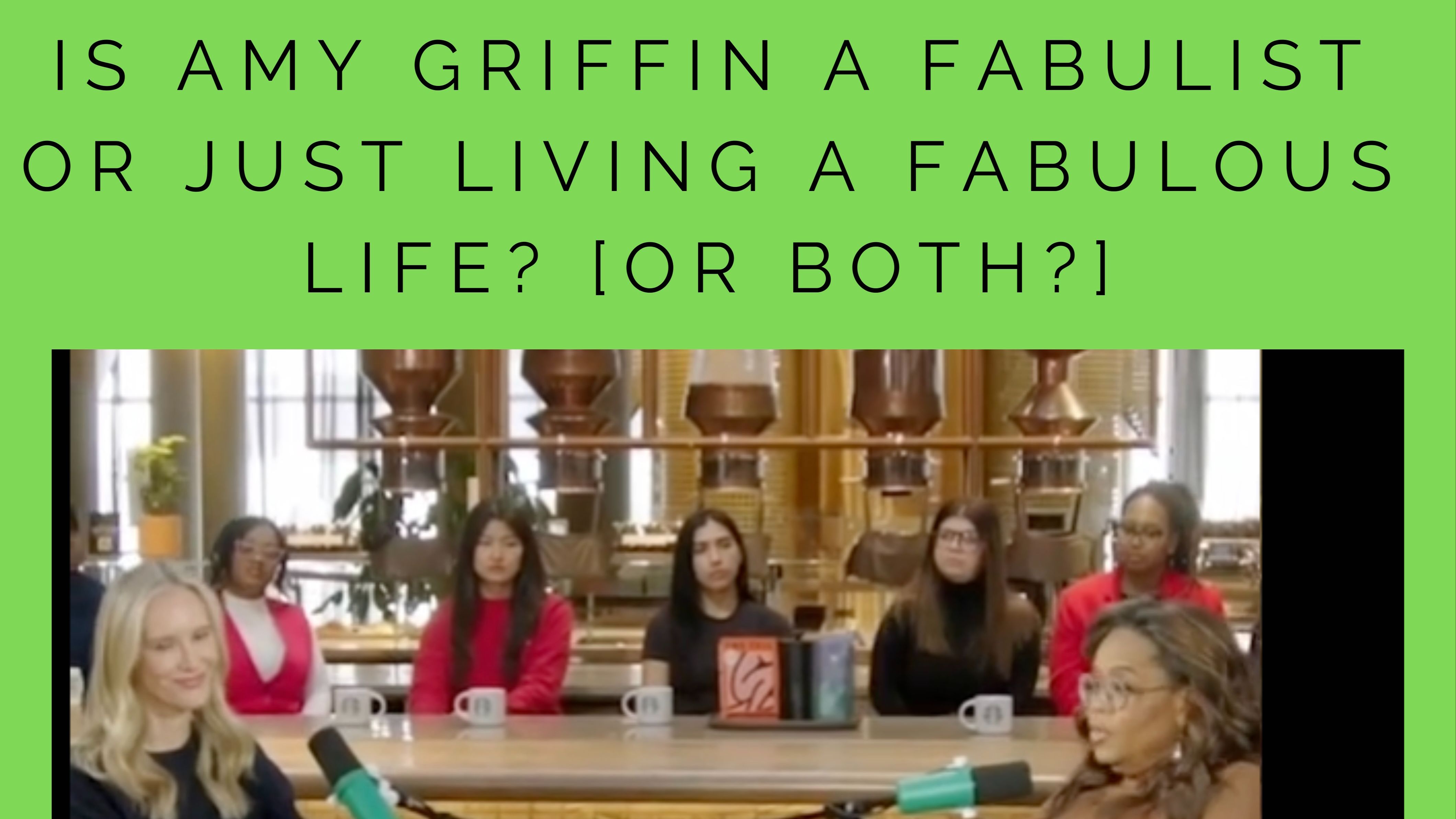
The System is Rigged Against You (But for Amy Griffin)
Oy was there an explosive NYT story this week for anyone interested in how book publishing works.
You could argue that with that sentence alone, I completely missed the point of the story.
See, it’s about a billionaire named Amy Griffin who wrote a memoir about her recovered memory of being sexually abused by one of her teachers. This memory surfaced while she was under the influence of psychedelics and there’s ample evidence that it is a false memory.
Caveat, of course: Never doubt a woman’s story, etc etc etc. I get it. But the reality is that not all stories from all women are true and these stories ruin people’s lives. Caveat on top of caveat: I have no idea if Amy Griffin’s memory is true; I’d never heard of her until yesterday!
So there’s a great deal in this story that could incite a lot of conversation around drugs, false memories, allegations of abuse and more.
But what fascinated me the most was her publishing experience. Amy Griffin was the first author ever to be heralded by all three kweens of the book world—Oprah, Jenna and Reese. She was also touted by Gwyneth, who never revealed that Griffin was her company Goop’s primary investor. With that kind of support from the most influential of people (when it comes to book sales), how could Griffin NOT sell over 100,000 copies?
It’s perhaps overly simplistic to say that Harris bought her way onto the New York Times list. But perhaps it’s not? Accepting favors from the rainmakers when it comes to book success is just a more elevated version of the game that was considered so pathetic just a few years ago, no?
To be clear, I would happily accept all the favors from the people Griffin did, and probably, like her, then accept all my accolades without ever saying that the people who helped me might have had ulterior motives so my admission into the bestselling author club was perhaps not achieved by my own merit.
But my point is this: Griffin is the sort of person who achieves traditional publishing success. Not the 99.9% of other authors out there.1 The situation reminds me a bit of when I worked in the celebrity journalism world and was a first-hand witness to the sheer number of free sh*t celebrities receive. But the people who need these gifts the least are the ones receiving them, I marveled. I knew better than to say out loud because…duh.
We all know that money doesn’t buy happiness and that resenting someone for being a billionaire who didn’t earn those billions herself is pointless. I’m sure Griffin suffers, because that’s what her actions suggest.
But it’s worth pointing out that the publishing world is just as unfair as a world that allows someone with Griffin’s power to go against someone with her former teacher’s. Again: duh. Still, people aren’t rational when it comes to anything creative. We think things like, My idea is so important and talent so great that Oprah/Reese/Gwyneth/fill-in-the-blank will discover me even though I have no way of reaching them. And then we’re devastated when it doesn’t happen.
We do this because creative work is irrational—God-inspired, as Elizabeth Gilbert2 talked about in her iconic TED talk. Also, I know the “it will be different for me” delusion all too well since it happened to me six times before I woke up.
This is one of the reasons I argue so vehemently against the traditional publishing route, which sets you up for failure. It’s why I argue for the authority-building route, which sets you up for success if you approach it correctly. You don’t need to be a billionaire to have the second route change your life; you just need to go in with open eyes and a plan. And by doing that, it could actually make you millions.
YES of course there are exceptions. But not one of those exceptions got the sort of support that Griffin did from power players.
I am totally obsessed with her new book, as evidenced by this rave I gave it on KATU this week.


